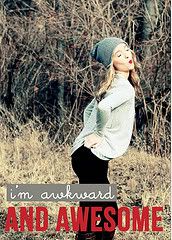I will admit. Starting this book I was intimidated. Lately I feel like my reading level has been a little... easy. Which has its place for sure. Thinking books, books that lead the reader to contemplate more than the story but the message and meaning behind it, are always a bit of an endeavour for me. I don't know why, but I develop this irrational fear when I undertake to read something that isn't just an easy read. I dip into the occasional thinking book. But 600 hundred pages of it? But I don't take people's recommendations lightly. If someone tells me I will enjoy and find something worth while, I usually make the effort to give it a chance.
I will say that I enjoyed this book. But Mr. Steinbeck certainly has a meandering way of telling a story. I know that he probably didn't include any portion that wasn't there to illustrate a point he wanted made; But all the same, I found a few of his side stories and his manner of introducing the point somewhat tedious. When he stayed with the main characters, I really enjoyed his writing style and the story. His characters are full and dynamic and very relatable. I couldn't help but relate as I'm sure all people relate. Quite honestly, there were several passages that I loved to read because of the truth contained within. It is a very smart book.
Its difficult for me to organize my thoughts on this book. There is the basic struggle of idealized versions of people. Of good and bad. Of the ability to handle disappointments. Of being a dreamer or a realist. Of jealousy, competition and never feeling good enough.
Not every good person was really good and not every bad person was all bad. You started out possibly hating a character, only to find yourself wishing that they weren't so lonely and that they would just let other people love them. The good brother wasn't always so good and the bad brother not always so bad. Even Cathy, the monster of the book, gave way to the occasional brief glimpse that hinted that she was more multi-faceted than pure evil.
A huge part of the novel was about acceptance. Being accepted for the imperfect people that we are. Not being made into some ideal, that can never be lived up to.
"The greatest terror a child can have is that he is not loved, and rejection is the hell he fears. I think everyone in the world to a large or small extent has felt rejection. And with rejection comes anger, and with anger some kind of crime in revenge for the rejection, and with the crime guilt - and there is the story of mankind"
Deep down Cal's story spoke to me. He wasn't easy to love. He was complicated and could be cruel as he lashed out to avoid being rejected. And I related to that. I often worry that the person that I am right in this moment is not enough. That I'm not kind enough, or thoughtful enough, or smart enough, or dedicated enough or good enough. And the list goes on until all I can see is the not enough. It makes me dizzy, the fear and doubt. And in my weakest moments, it breaks me down.
As I talked with my mother the other day, she marvelled that despite my fears, I always push forward to do the things that frighten me. I don't let my fear hinder me. And I laughed that I can be such a fearful girl and a brave risk-taker in the same breath. They seem like very contrary natures. Then again, I often feel rather contrary.
But my bravery and fear are of the same chord. I want acceptance, and I would generalize it to say that I am not alone in this fact. But no one can accept what they do not know and there is a value in seeing yourself, as you truly are and accepting that. I'm neither all bad nor am I all good. I am dynamic but each day I have the ability to choose how to live my life.
Part of the book discussed a passage about Cain and Abel, where Lee, Samuel and Adam debate the meaning behind wording used in the Old Testament as God speaks to Cain about his ability to overcome sin.
"Timshel - 'Thou mayest' - that gives a choice... That throws it right back on man. For if 'thou mayest' - it is also true that 'thou mayest not.'
...Many feel the order 'Do thou,' and throw their weight into obedience... Many feel predestination in 'Thou shalt.' But 'Thou mayest'! Why, that makes a man great, that gives him stature with the gods, for in his weakness and his filth and his murder of his brother he has still the great choice. He can choose his course and fight it through and win.
Think of the glory of the choice! That makes a man a man."
I love the thought that we aren't predestined to be anything. What we become is through our own making. It gives such power to the individual. What we become is what we make. Yes, it puts a lot of pressure on the individual as well, but there is such freedom in the ability to choose.





No comments:
Post a Comment